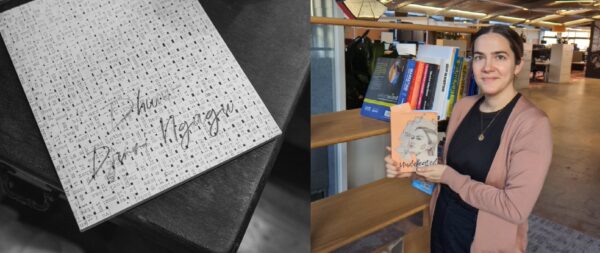Professional Migration Women would like to acknowledge that we stand in unceded lands.
We pay our respect to the traditional custodians of the lands on which we are fortunate to live, love, work and thrive. #AlwaysHasBeenAlwaysWillBe
We acknowledge Diversity, advocate for Inclusion and fosters a sense of Belonging.
Something I noticed after living in Australia for a few years was that its history is more complex than it initially seemed. As a migrant, I have come to realise that I lack a deep understanding of the rich history and culture of the First Nations people.
At a glance and at a distance, more often than not, you hear that “Australia is young, full of heavenly beaches and has a tremendous future”. However, two out of those assumptions seemed accurate.
Once the veil of Eurocentrism lifted-off, I learnt that the culture of Australia’s Aboriginal people is one of the oldest in the world (if not the oldest!)*; Aboriginal Australian Culture dates back more than 60,000 years!
It wasn’t until I started interacting with different kinds of communities through my volunteer work at Professional Migrant Women and Ondru.org that I realised I had so much learning to do on Australia’s rich and diverse cultural landscape.
As migrants, by acknowledging and embracing Australia’s First Nations heritage, we can forge stronger connections, promote inclusivity, and foster a united and harmonious society.
These are a few things I learned over my still evolving journey that I’d like to share with you if you’re new (or maybe not so new) to Australia**:
Respecting the Land’s Custodians
When embarking on our journey in Australia, we must recognise that this land has a deep-rooted history that stretches back tens of thousands of years. Aboriginal Australians and Torres Strait Islanders have lived in harmony with the land, forming an unbreakable bond with nature and their ancestors, and that the land was never ceded.
Understanding this connection is essential, as it teaches us the significance of preserving the environment for future generations and respecting the custodianship of the First Nations people over the land.
For more information you can visit this link.
Promoting Cultural Awareness
By familiarising ourselves with the cultures, traditions, and languages of Aboriginal Australians and Torres Strait Islanders, we can break down cultural barriers and foster a sense of understanding and respect. Cultural awareness enhances communication, improves teamwork, and creates an environment where everyone’s perspectives and contributions are valued. Moreover, it enables us to engage with Indigenous communities more effectively, potentially leading to mutually beneficial partnerships and collaborations.
A great example of celebrating and amplifying the voices of Aboriginal Communities is Ondru’s recent book Dhum-Djirri Ngagu, which showcases the Indigenous stories of connection to country, community and culture.
Supporting Reconciliation Efforts
Reconciliation between Indigenous and non-Indigenous Australians is an ongoing process that requires the active involvement of everyone in the country. As migrants, we can play a crucial role in this process by becoming allies in supporting the rights and aspirations of Aboriginal and Torres Strait Islander communities. This might involve advocating for policy changes, participating in cultural events, and promoting Indigenous businesses and artists. Embracing reconciliation is not only an act of solidarity but also a commitment to building a stronger and more unified nation.
Here’s a great way to start to learn more about this topic.
Voice in Parliament
In late 2023, Australians will have their say in a referendum about whether to change the Constitution to recognise the First Peoples of Australia by establishing an Aboriginal and Torres Strait Islander Voice.
The referendum proposes to enshrine in the Constitution a constitutionally guaranteed Voice to Parliament, ensuring that Indigenous voices are heard on matters that directly affect their lives and communities. The Voice aims to provide a platform for Indigenous Australians to participate in decision-making processes at a national level, influencing policies and legislation that impact their well-being, rights, and cultural heritage.
Visit https://voice.gov.au/ for more information.
Support First Nations Businesses
By embracing and valuing Indigenous products and services, we contribute to the preservation of their cultural heritage, traditions, and knowledge, allowing these communities to maintain their identity and pass down their wisdom to future generations. Supporting First Nations businesses is not just a transaction; it is a gesture of respect, solidarity, and recognition of the invaluable contributions they make to our societies.
Checkout this directory of verified Indigenous businesses.
As you move forward on your Australian journey with this information, remember that each interaction, conversation, and exchange you have is an opportunity to embody the principles of respect, understanding, and empathy.
By weaving the threads of Aboriginal culture into the tapestry of your own migrant experience, you contribute to a collective narrative that honors the past, celebrates the present, and lays the foundation for a more inclusive and united future.
So wherever you find yourself in this vast country, hope these insights and resources enriched your understanding, and inspire a lasting appreciation for the cultural complexity that defines Australia.
By Ale Catania in Bulleke-bek.
* I couldn’t find a definitive official answer on this!
** Please note that I’m not an expert in this subject matter and this article only reflects my personal experience.





